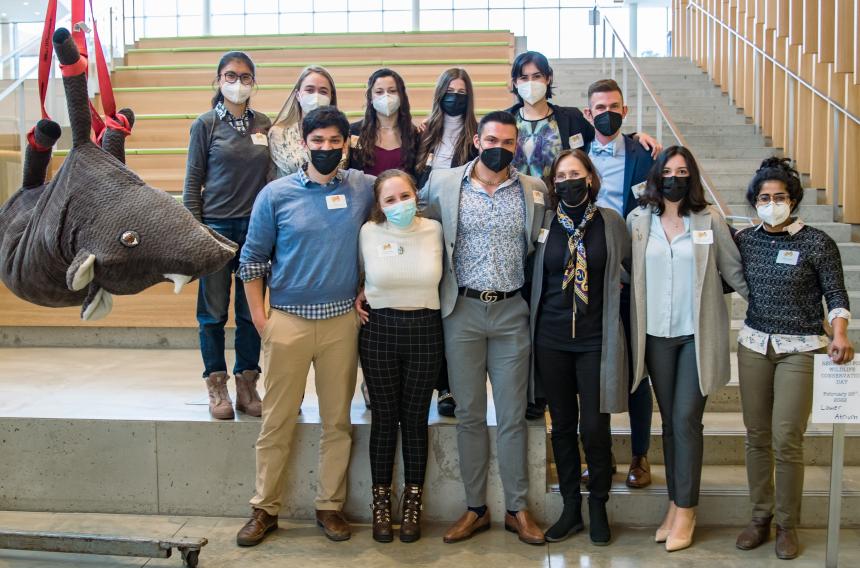In the News

Announcement
March 29, 2022
Our scientists work around the world to improve public health outcomes, strengthen local and international food systems, and catalyze wildlife conservation efforts— all while training the next generation of One Health professionals. Find out how you can support making our world safer and healthier for all.

March 21, 2022
Cornell’s Zoo and Wildlife Society hosted its first Wildlife Conservation Day Feb. 26, a one-day symposium devoted to education and training for students with an interest in non-domestic species.

Blog
February 14, 2022
Cornell veterinary student Carolina Baquerizo, DVM '24, describes her experience completing a summer externship in wildlife medicine at the South-East Zoo Alliance for Reproduction and Conservation (SEZARC).

October 28, 2021
While global attention is of course currently focused on COVID-19 and other diseases that jump from animals to people, people and domestic animals can also spread disease to wildlife, notes the Cornell Wildlife Health Center's Dr. Steve Osofsky.

October 11, 2021
History is pockmarked with the scars of past zoonotic outbreaks. The Cornell Wildlife Health Center's Dr. Steve Osofsky discusses how global cooperation in a unified “one health” effort is needed to prevent the next pandemic.

October 05, 2021
Dr. Katherine McClure, quantitative disease ecologist and 2019-2021 postdoctoral fellow with the Cornell Atkinson Center for Sustainability and the Cornell Wildlife Health Center, is working to save Hawai’i’s native bird populations from avian malaria.

September 29, 2021
Dr. Katherine McClure, a quantitative disease ecologist, has been working with Birds, Not Mosquitoes as a Cornell Atkinson Center for Sustainability postdoctoral fellow with the Cornell Wildlife Health Center to develop and evaluate incompatible insect technique (IIT) release strategies to help save Hawai‘i’s native bird populations from avian malaria.

August 20, 2021
KAZA Ten Years On: World’s largest terrestrial transfrontier conservation area requires true habitat connectivity, as explained in a letter to Science by Cornell’s Dr. Steve Osofsky and WWF Namibia’s Dr. Russell Taylor.

August 05, 2021
Cornell's Dr. Steve Osofsky and colleagues reemphasize that a One Health approach is urgently needed to prevent future pandemics — simultaneously addressing human, animal and ecosystem health — protecting humanity and nature.

Announcement
July 29, 2021
Our Beyond Fences program in southern Africa has been awarded a three-year grant from WWF to help facilitate greater collaboration between the wildlife and livestock sectors to resolve previously intractable conflicts between animal disease regulatory needs and transfrontier conservation area objectives.
